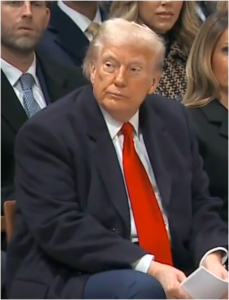During the national prayer service at the Washington National Cathedral, President Donald Trump and Vice President J.D. Vance appeared visibly frustrated when the sermon, delivered by Right Reverend Mariann Edgar Budde, took a political turn. Budde, a vocal critic of Trump and the U.S. government following the death of George Floyd, began her address with a plea for unity but quickly shifted her message to immigration and LGBTQ rights, topics that clearly seemed to irk the attendees.
Budde spoke directly to Trump, urging him to have “mercy on the people in our country who are scared,” particularly highlighting concerns over LGBTQ children and immigrants, some of whom lack documentation. “The vast majority of immigrants are not criminals,” she said, noting their contributions to society, from laboring in farms to working in hospitals. She also called on Trump to show compassion toward those fleeing persecution, emphasizing the religious principle of mercy for strangers.

President Trump reacts to Episcopal Bishop Right Reverend Mariann Edgar Budde, who lectured him and VP Vance on illegal migrants and LGBTQ children during church service at the Washington National Cathedral on Monday.
The vice president and second lady were seen whispering to each other as Budde’s remarks unfolded, which were clearly uncomfortable for the officials. While Budde initially called for unity, stressing the importance of community across differences, her comments soon veered into a criticism of the Trump administration’s policies, particularly on issues related to immigrants and marginalized groups.
Budde had previously made headlines for her outspoken stance following George Floyd’s death, during which she expressed support for the Black Lives Matter movement and the protests that followed, despite the violence and destruction. She also criticized Trump during a 2020 interview, stating, “I’ve given up speaking to President Trump. We need to replace President Trump.” This background added a layer of tension to her comments during the prayer service, which some attendees interpreted as more of a political statement than a religious message.